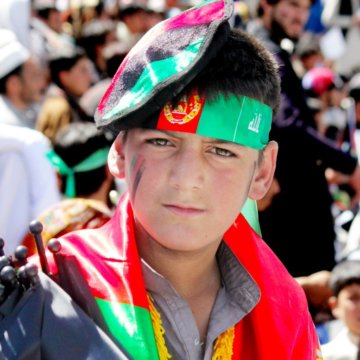- About
- Topics
- Picks
- Audio
- Story
- In-Depth
- Opinion
- News
- Donate
- Signup for our newsletterOur Editors' Best Picks.Send
Read, Debate: Engage.
A brazen suicide blast rippled through a crowd of enthusiastic young Afghans queuing-up for a rare sports event, featuring international players in the country’s war-riddled capital of Kabul.
The attack claimed three lives, left many wounded and shattered the dreams of hundreds of thousands of Afghans, who hoped to see public events like this cricket competition flourish in a country that has been reeling with miseries for more than four decades now. Claimed by the so-called Islamic State militants, this terrorist attack, which took place on Wednesday September 15, failed to break the will of the resilient nation.
On the very next day, even larger crowds of passionate and sports-loving youngsters gathered outside the Alakozay International Cricket Ground in Kabul, where the attack took place, to defy the ugly forces of fanaticism, and to embrace the beauty of life. The Afghanistan Cricket Board (ACB) played its due role in ensuring order and continuation of the ‘Shpageeza’ championship festivities in the backdrop of all the hassle, keeping its peoples’ hopes for a better life alive.
The courageous gestures demonstrated by the spectators as well as the sportsmen send a clear and coherent message to advocates of terror: their relentless tactics of hate and terror to impose a self-proclaimed lifestyle on others have failed. The younger generations of Afghans, who have been raised in a war-torn country want to live a peaceful, cheerful and above all independent life that is not chained by ideologies forced upon them with fear.
Within a few years of embracing the British game of cricket, the talented Afghan nation has made its mark on the world stage. The country is now ranked among the top ten cricket teams in the world, and young players from Afghanistan like Rashid Khan Arman and Mohammad Nabi Essakhail are already making headlines with their exceptional skills and dedication.
This achievment needs to be encouraged and promoted, on a global level in order to fight terror's ultimate purpose of numbing and paralising progress for the sake of vague strategic or political goals.
